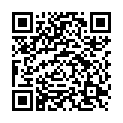|
|
|
| Module code: BAME18-10 |
|
|
5S (5 hours per week, accumulated) |
|
7 |
| Semester: 3 |
| Duration: 2 semester |
| Mandatory course: yes |
Language of instruction:
German |
Assessment:
Exam achievement: Presentation in class and term paper
[updated 01.10.2020]
|
BAME18-10 (P311-0011, P311-0012) Health care management, Bachelor, ASPO 01.10.2018
, semester 3, mandatory course
|
75 class hours (= 56.25 clock hours) over a 15-week period.
The total student study time is 210 hours (equivalent to 7 ECTS credits).
There are therefore 153.75 hours available for class preparation and follow-up work and exam preparation.
|
Recommended prerequisites (modules):
BAME18-05 Academic Methodologies and Study Skills I
BAME18-07 Methodologies I
[updated 17.08.2017]
|
Recommended as prerequisite for:
|
Module coordinator:
Prof. Dr. Martha Meyer |
Lecturer:
Prof. Dr. Johannes Gräske
Prof. Dr. Martha Meyer
Dr. Sindy Lautenschläger
[updated 17.08.2017]
|
Learning outcomes:
Diagnostics and Assessment in Health Care Professions
After successfully completing this module, students will be competent with regard to the theoretical basics, terms and meaning of diagnostics and assessment. They will be able to explain the importance of diagnostics, identify the prerequisites for development and establishment, and provide reasons for the importance of further development/professionalisation of the health care professions. Students will be familiar with the assessment tools used in practice and research for different needs and requirements. They will be able to evaluate assessment tools in terms of their appropriateness, usefulness and relevance and to justify them on the basis of professional criteria.
Evidence-Based Practice in Health Professions
Based on the international ebn network, methods for the analysis and evaluation of scientific literature in nursing and health sciences and medicine (EBN, EBPH, EBM) will be introduced. This will facilitate the transfer of theory to practice for the students. A special focus will be placed on the first four steps of EBN/EBM: 1. Identify and clarify the task 2. Formulate the clinical question 3. Literature research and 4. Critically appraise the quantitativ and aualitative studies In doing so, students practice, repeat and deepen their knowledge of the methodological principles of different study designs (quantitative, qualitative) and forms (intervention study, meta-analysis, evaluation study, etc.) on the basis of published scientific articles and essays. The aim of the course is to enable students to independently assess the quality of scientific investigations. The course will culminate in the independent analysis and evaluation of a scientific study.
[updated 01.10.2020]
|
Module content:
Diagnostics and Assessment in Health Care Professions:
_ Important terms (assessment, screening, diagnosis, clinical reasoning, clinical judgement)
_ Assessing the status and setting goals in the context of the International Classification of Functioning Disability and Health (ICF)
_ Relevance, systematics and translation of assessment tools
_ Developing assessment tools
_ Evaluating assessment tools based on quality criteria
Evidence-Based Practice in Health Professions
1. Research-based practice versus evidence-based practice
_ Discussion about how science is understood
_ What is evidence?
_ Why EBN, EBPH and EBM?
2. Evidence-based nursing/Evidence-based medicine
_ Formulating questions, literature research, critical appraisal of evidence from studies (external validity, relevancy, applicability), deciding on how to intervene, application, evaluation
_ The _Evidence_ network:
3. Qualitative and quantitative research and EBN
_ Possibilities, chances and limits
[updated 01.10.2020]
|
Teaching methods/Media:
Print and electronic media, slides, case studies, exercises, PC exercises
[updated 01.10.2020]
|
Recommended or required reading:
Diagnostics and Assessment in Health Care Professions:
_ Bengel J, Wirtz M, Zwingmann C (Hg) (2008). Diagnostische Verfah-ren in der Rehabilitation. Bern: Hogrefe
_ Bühner M (2011). Einführung in die Test- und Fragebogenkonstrukti-on. 3. akt. Aufl. München: Pearson
_ Carpenito-Moyet LJ (2013). Das Pflegediagnosen-Lehrbuch: Pfle-geassessment - Pflegediagnosen und Pflegeinterventionen für Profis und Praxis. 1. Aufl. Bern: Hans Huber
_ Gordon M (2013). Handbuch Pflegediagnosen. 5. vollst. überarb. u. erg. Aufl. Bern. Hans Huber
_ Mossbrugger H, Kelava A (Hg) (2012). Testtheorie und Fragebogen-konstruktion. 2. Aufl. Berlin, Heidelberg: Springer
_ Reuschenbach B, Mahler C (Hg) (2011). Pflegebezogene Assess-mentinstrumente. Internationales Handbuch für Pflegeforschung und Praxis. 1. Aufl. Bern. Hans Huber
_ Schnell R, Hill PB, Esser E (2013). Methoden der empirischen Sozial-forschung. 10. Aufl. München: Oldenbourg
_ Schädler S, Kool J, Lüthi H, Marks D, Oesch P, Pfeffer A, Wirz M (2012). Assessments in der Rehabilitation. 3. vollst. überarb. und erw. Aufl. Bern: Hans Huber
_ Schumacher J, Klaiberg A, Brähler E (Hg) (2003). Diagnostische Verfahren zu Lebensqualität und Wohlbefinden. Göttingen u.a.: Hogrefe
Evidence-Based Practice in Health Professions
_ Behrens J, Langer G (2010). Evidence-based Nursing and Caring. Methoden und Ethik der Pflegepraxis und Versorgungsforschung: Vertrauensbildende Entzauberung der Wissenschaft. 3. überarb. u. erg. Aufl. Bern, Göttingen u.a.: Hans Huber
_ Cullum, N.; Ciliska, D.; Haynes R. B. & Marks S. (2013). Evidence-based Nursing. An Introduction. Oxford a.o.: Blackwell Publishing
_ Deutsches Netzwerk Evidenzbasierte Medizin (DNEbM). http://www.ebm-netzwerk.de/
_ Evans I, Thornton H, Chalmers I et al. (2013). Wo ist der Beweis?: Plädoyer für eine evidenzbasierte Medizin. 1. Aufl. Bern: Hans Huber
_ Gerrish K, Lathlean J (2015). The research process in nursing (7th ed). Chichester, UK: Wiley-Blackwell
_ Greenhalgh P (2011). How to read a paper. The basics of evidence-based medicine. 4. ed., [Nachdr.]. Chichester: Wiley-Blackwell
_ Greenalgh T (2003). Einführung in die Evidence-based Medicine. Kritische Beurteilung klinischer Studien als Basis rationaler Medizin. 2. vollst. überarb. Aufl. Bern: Hans Huber
_ Herkner H, Müller M (2011). Erfolgreich wissenschaftlich arbeiten in der Klinik. Grundlagen, Interpretation und Umsetzung: Evidence Based Medicine. 3. Aufl. Wien: Springer
_ Mangold S (2011). Evidenzbasiertes Arbeiten in der Physio- und Ergotherapie. Reflektiert - systematisch - wissenschaftlich fundiert. Berlin, Heidelberg: Springer
_ Polit DF, Beck CT Hungler BP (2004). Lehrbuch Pflegeforschung. Methodik, Beurteilung und Anwendung. 1. Aufl. Bern: Hans Huber
Additional literature will be announced in the course.
[updated 01.10.2020]
|


